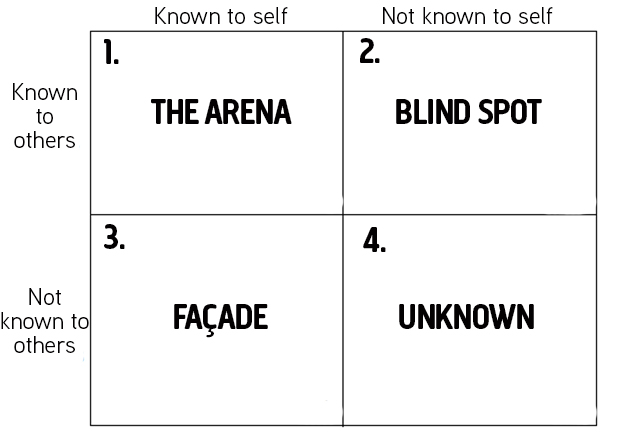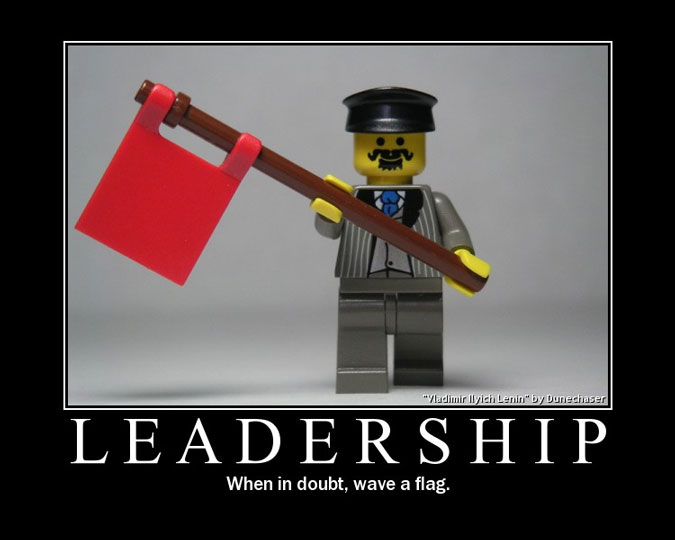“If I want the job done properly then I have to do it myself.”
How often have you heard that one … probably said by a manager, frustrated by the lack of expertise of some staff member?

Image courtesey of Wikimedia Commons
Why, you may wonder, has the worker not got the expertise? Why must the harassed manager carry so much of the burden?
Several years ago I was working for a major international financial organisation when they offered a Time Management course for senior executives. All agreed the course would probably be useful. But attendance was optional and when the day arrived only four, of over forty, of these senior people turned up. The reason? Go on, you know already, don’t you? Yes, they couldn’t spare the time to attend!
Why are staff at all levels – from the most junior to the most senior – so ‘time poor’ in today’s business environment?
Where, it appears, too many people seem to be taking on an inordinate workload … and not handling it well. Could it be that, to use a common modern phrase, rather than working harder they need to work smarter?
John A G Smith
1 Jul 2016
Chances are, if you’re reading this at work you could (and probably should) be doing something else with your time. I’d love for everyone to read from start to end, but take a step back and spend two minutes tackling one of your smaller tasks and then come back. Set the pattern for productivity early in the day and carry that work ethic with you until you’ve finished!
Still here? Great!
Here are 5 Time Mnagement Practices for the Digital Age.

Why not find out more about our Time Management training course?
"Eat the Frog"

It’s amazing what you remember from when you are a child.
For me, it's “eat the frog”.
I spent many teenage years agonising over things that just weren’t important in the grand scheme of things - horrible, menial tasks that wouldn’t result in anything more significant than a nod of approval from your least favourite biology teacher.
I would go to my mother during my distress and tell her my tale of woe. Her response? “Eat the frog”, get it done now and put it behind you. There’s no need to spend the rest of the day worrying about those unpaid invoices when you could spend an hour doing it now. Sure, it will be a gruelling hour, but you will feel far better having done it and can instead focus on other tasks with the stress off your back.
“If it’s your job to eat a frog, it’s best to do it first thing in the morning. And if it’s your job to eat two frogs, it’s best to eat the biggest one first”. - Mark Twain
Bill Murphy Jr's 'Mark Twain was a Marketing Genius' is a great piece on a man far ahead of his time.
Create a Simple Daily Plan

After setting up the day’s training in the morning, I sit down and plot out which tasks need to be completed on simple lined paper. By all means use a program like Evernote, or an excel spreadsheet, just take the first step to tackling workload and write it down.
We are all guilty of seeking complex answers to simple questions. Civilisations have functioned for thousands of years without the latest voice planner. You’ll get more satisfaction from physically ticking items off a checklist than you will from any spreadsheet.
By the time you’ve thought of what you’ve needed to do, opened the software/spreadsheet, created a table, typed in each item and saved the document to your desktop you could have already tackled the first task of the day. A window on your computer screen quickly gets lost in the mass of emails and proposals. Write it down – get it done.
See The Bigger Picture
You are employed (hopefully) to do a job. Said job entails work. No getting around it, there’s no miracle cure for procrastination. But realising that you have a time management issue is the first step to overcoming it. If planning and preparing aren’t doing the trick then maybe the answer is time management training. We all know that feeling after a particularly inspiring email from the manager or the latest TED talk, that new found enthusiasm drives us to work 50% harder that day. But it’s easy to lapse back into old habits. 50% becomes 40% as the weeks progress and eventually you’re right back where you started.
Our Time Management training will teach you life skills to maximise productivity and get the most out of your time.
Tidy Desk, Tidy Mind
Clean away your worries; it’s as simple as that. We’re not just talking about stray coffee mugs. Either deal with that paperwork now or put it back in the filing cabinet so you can apply yourself to it later when there are fewer distractions.
If you don’t have the time or space to do it right, when will you have the time to do it again?

Check out Lifehack's 'Top 15 Time Management Apps and Tools'
Much like the planning stage of your day, organise your desk to suit the day’s needs. If you don’t need it in the immediate future, then there’s a better place for it. Tidying your desk and focus on one thing at a time.
We never said it was rocket science.
Prepare for Meetings
So the marketing department weekly meeting happens every Friday. This time, go in prepared.
What am I going to be asked – this week’s events, current state of projects etc.
- How will I respond – Hopefully if you’ve followed the rest of our tips then you should have had organised enough time to get that work done!
- What’s on the agenda for next week? – Permitting the rest of your work is of equal importance; try to tackle the bulk of your work earlier in the week.
- Prepare your own questions – This doesn’t take long at all, but do it! There’s nothing worse than worrying about a potential deadline over the weekend because you forgot to ask the question during Friday’s meeting.
Covered the main points? Instead of waiting till the end of the meeting as you usually do and having to rush the rest of the day’s unfinished work, test the water and see if there is a point during the meeting that you could leave at with the rest of the department. Of course, be sensible, but we all know how some meetings are prone to dragging on a bit.
Make sure you’ve taken plenty of notes! But don’t leave them in the midst of the rest of your desk mess! Do next week’s checklists in advance, prioritise the tasks on your daily checklist in order of urgency. There’s a difference between something that’s urgent and something that’s important. (Eisenhower's Urgent/Importance Principle)
Tomorrow you will wish that you had done it yesterday.
Take active steps to complete your work before it becomes overwhelming.
Andy Trainer
8 Apr 2015
When you ask any group of workers what motivates them to come to work, at least one and probably most will include 'money' in the response. Pay is a big issue for most people and is certainly a reason why people go to work, even sometimes staying in jobs they don't like. But is it a motivator?
Herzberg's Two Factor Theory suggests that there are two different sets of factors that determine job dissatisfaction and job satisfaction.
Herzberg's Two Factor Theory
| Satisfiers/Motivation Factors | Dissatisfiers/Hygiene Factors |
|---|---|
|
|
Andy Trainer
20 Nov 2014
The Johari Window model, devised by American Psychologists Ingham and Luft during a research period at the University of Los Angeles in 1955, is a behavioural model which aims to boost group relations through individual self awareness and mutual (group) understanding.
The model is a combination of the first names of Joseph Luft and Hari Ingham; they’re remembered over fifty years later which shows what good workplace relationships can achieve.
The Johari Window model is particularly useful in assessing group relations with other parties. Despite being published over fifty years ago, the model is still relevant in the work place today. This is due to current popular workplace emphasis on cooperation, inter-group development, interpersonal development, soft skills, behaviour and the influence of these factors.
The ease of using the Johari Window Model to understand relationships between employees and the employer within the Psychological Contract is an invaluable benefit to businesses.
What Does The Johari Window Mean?
The model is, on the face of it, is as simple as it appears. Its application in the workplace is slightly more tricky, but we’ll get to that later.

Andy Trainer
14 Nov 2014
'He was a wise man who invented (management)'!
It might not seem apparent at first, butManagementandPhilosophygo together likeKant and the Categorical Imperative.
Management, among other things, seeks to provide a structure to get the best from people, to understand business and make people (customers, staff, bosses) happy.
Philosophy, among other things, seeks to provide a structure to get the best from life, to understand the world and make people (society, individuals) happy.
So can managers learn anything from the great philosophers? Certainly.
If you'd like to learn how to be a great manager, why not try ourManagement Skills Courses?
This post will be part of a series called'Management Lessons From Philosophy'we'll start with the ideas of the ancient philosophers from Greece and work our way up to the modern thinkers, exploring everything that can be applied to management along the way.
This week we begin with the man who started it all:Plato.

"The Unexamined Life is not Worth Living"
The Godfather of everything philosophical, Plato isthe manwhen it comes to wise one-liners that make you re-evaluate, well, everything!
With this quote he is arguing that to make the most of life, one really needs to inquire and seek knowledge, both about the world and oneself.
Andy Trainer
8 Jan 2013
You did it! You got that promotion or new job that means you'll be leading a team. It's an achievement in itself, but here's where the really hard-work begins!
If you're new to management, taking charge (and responsibility) of a group of people can be a daunting task, but fear not; help is on hand. We've compiled this handy guide to give you some ideas as to how to go about approaching your new role. Of course, you can always try our Management Skills for New Managers Training which teaches you everything you need to become a confident and successful manager.

1/ Prepare
We all know the classic adage "failing to prepare is preparing to fail" but in this circumstance it most certainly holds true. As you are a new manager, it's unlikely that you've done much research into it before now. Well, now is the time!
You've made a good start by reading this post, but there are literally hundreds of resourcesavailable to you on the subject (that go into much more detail on specific areas within management) so make use of them. In terms of research prior to starting the job, this is what you should be looking at:
- Management definitions- know exactly how your new job will differ to your old one in terms of roles and responsibility.
- Management styles- be aware of the different management styles that can be adopted and begin thinking about the style most suited to you.
- Techniques - everything from how to go about hiring and firing to how to talk to staff, it will all help in the long-run.
Andy Trainer
14 Dec 2012
Throughout history there are certain figures who stand out as naturally great leaders. It is always useful for managers to focus on the qualities that made these people great and try to emulate them.
You can learn how to develop these qualities and much more on our leadership and management courses.
We recently gave some tips for managing a start-up but in this post we will focus on the more general skills that can apply to anyone in a leadership position, whether your business is just getting off the ground or you're an established manager with years of experience. And we'll be having some fun with it too... hopefully.

John F. Kennedy - Aspire to Greatness
JFK was perhaps the most youthful, vivacious and daring president there has ever been (and we're not just talking about his extra-marital exploits here). While this sometimes got him into trouble (*nearly caused the apocalypse) he will be remembered as the man who dreamed of putting a man on the moon, reversing the centuries-old persecution of African-Americans and bedding Marilyn Monroe!
Dare to dream like JFK. Aim for the stars and still land on the moon, aim for Mila Kunis and still land on...actually, I think we'll leave that analogy there. Aspiring towards greatness instills a confidence in your employees in both you, and themselves. Be like JFK. Be remembered. Be great.
Andy Trainer
14 Nov 2012
Good leadership is not just about managing and maintaining what is. Great Leaders need not to be afraid to make mistakes. They need to have the confidence to take risks. Our Leadership Skills training course, will help you develop your outside of the box thinking.
Consider the following quotes:
"640K ought to be enough for anybody." - Bill Gates, 1981, rejecting proposal for larger computer memory.
"We don't like their sound, and guitar music is on the way out." - Decca Recording Co. rejecting the Beatles, 1962.
"Who the hell wants to hear actors talk?" - H.M. Warner (Warner Brothers) before rejecting proposal for movies with sound in 1927.
"The concept is interesting and well-formed, but in order to earn better than a 'C,' the idea must be feasible." - A Yale University professor in response to Fred Smith's paper proposing reliable overnight delivery service. (Smith went on to found Federal Express Corp.)
"The wireless music box has no imaginable commercial value. Who would pay for a message sent to nobody in particular?" - David Sarnoff's Associates in rejecting a proposal for investment in the radio in the 1920s.
It is important not to be confined to the present but to look to the future. Organisations today need to be organic, they need to grow and change. When the movie camera was finally accepted and became main stream, the camera did not move! The actors would run around the static camera like the theatre or still camera. The idea that the camera could move around the actors took a while to develop. To see great opportunities you need good leadership skills. Great Leaders look beyond current practises and markets.
Try this test to see if you can think outside the box! - Draw nine dots to make a square - three rows of three. Try and join the nine dots with 4 straight lines.
Do you need 5 lines?
The correct answer is shown here in this diagram.
Did you restrict yourself - impose the restriction that lines cannot go outside the box. Try not to give yourself self-imposed restrictions that prevent you and your organisation from reaching your goals and developing new ideas that will keep the company growing and changing.
This way of thinking is commonly called thinking outside of the box. Inside the box thinkers are very skilled at killing ideas. For example, Charles H. Duell, Director of the US Patent Office, said in 1899, "Everything that can be invented has been invented."
Great leaders think outside the box by displaying the following qualities:
- Listening to others
- Supporting others when they come up with new ideas and respecting them
- Valuing new ideas and not being afraid to act on them
- Willingness to look at new perspectives to day to day work
- Openness to different things
- Openness to doing things differently
Andy Trainer
30 May 2008